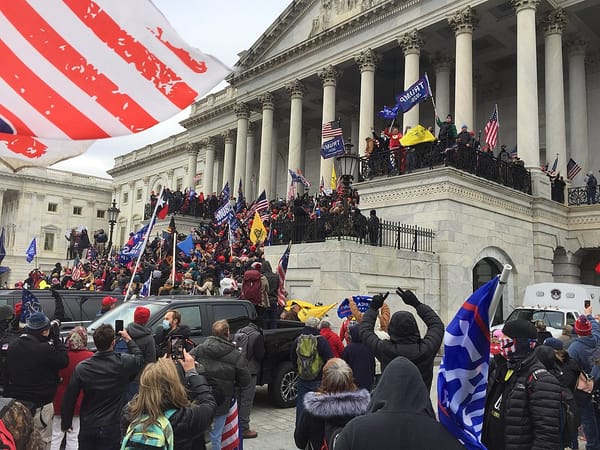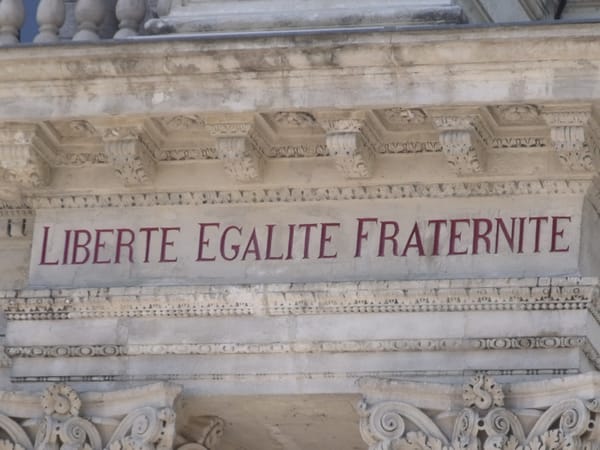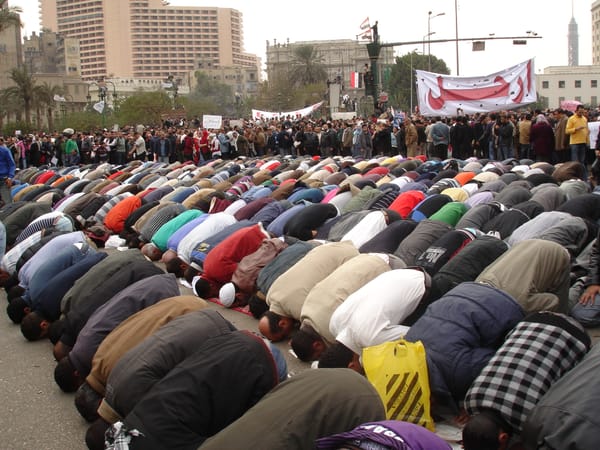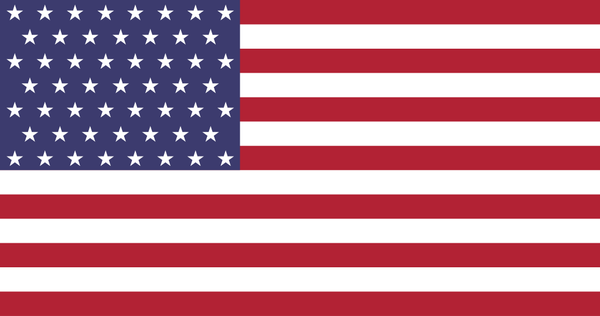Edmund Fawcett and the Practice of Liberalism
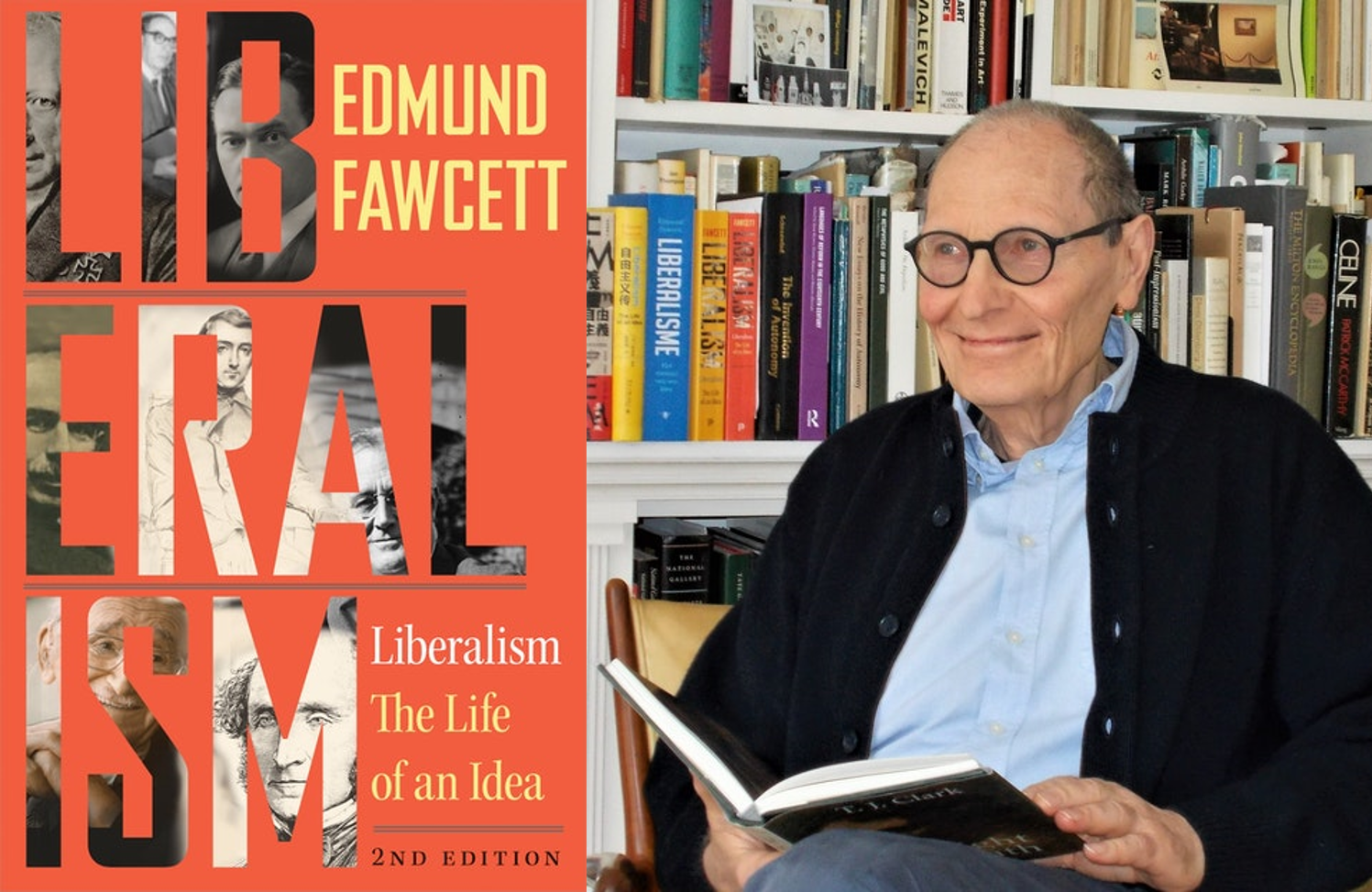
As histories of liberalism go, Liberalism: The Life of an Idea is a remarkable achievement, a history of liberalism over the past two centuries not only as theorized by philosophers and economists, but as practiced by politicians and activists. It’s also a real pleasure to read, with vivid prose. In Edmund Fawcett’s telling, liberalism is a political practice that defies strict definition. The practice of liberalism got started early in the 19th century with the first liberal political parties emerging in Spain and later France. Fawcett maintains a wide but manageable perspective by focusing on the unfolding liberal traditions in four countries: France, Germany, the United Kingdom, and the United States. This prevents the tale from becoming too parochial, and keeps with the pluralist and internationalist character of liberalism itself.
As a practice, Fawcett insists that liberalism is best understood as what liberals do and say in the social and political spheres, and not as a philosophy that naturally unfolds from a clearly defined set of principles. You can’t say much that is useful about liberalism by, for example, claiming its central principle is liberty. Fawcett wryly notes that liberals do indeed stand up for liberty, but for certain values of ‘liberty’, so do nonliberals from Karl Marx and the Pope to Confederate Vice President Alexander Stephens, never mind garden variety conservatives and socialists.
That said, Fawcett does identify four non-trivial features of liberal practice.
Amid the ceaseless change of capitalist modernity, the first liberals sought durable new ways to secure ethical and political stability. That liberal search, then as now, was guided by four broad ideas: acceptance that moral and material conflict in society cannot be expunged, only contained and perhaps in fruitful ways tamed; hostility to unchecked power, be it political, economic or social; faith that social ills can be cured and that human life can be made better; and law-backed respect by state and society for people’s lives and projects, whatever they believe and whoever they are.
The novelty here is something to behold. Fawcett maps out an impressive history of liberalism from the perspective of philosophers, economists, politicians, and other social actors in a distinctive approach. But he also reconceives liberalism in a fruitful new framework, intelligible in traditional liberal incarnations, but not married to the old conventional terms. (Compare to John Gray’s famous four liberal principles of individualism, egalitarianism, universalism, and meliorism.) But there are a couple points of possible divergence from convention that are worth noting.
The first is that the inevitability of “moral and material conflict” is given as a pillar of liberal thought. In one sense, the reality of conflict is just another way of saying liberals believe in pluralism, be it ethnic, creedal, ideological, or what have you. A liberal society must make room for different kinds of people to live together in peace. But this seems to be in some tension with the classical liberal idea of the “harmony of interests,” whereby in a liberal society with free markets the interests of all are advanced by the various self-directed pursuits toward individual betterment. Fawcett doesn’t discuss this article of classical liberal faith, yet the idea plays into the liberal resistance to democracy and the expanded franchise as an ideological trump card. If classical liberals could just dodge or stymie democratic impediments to implement laissez-faire policies, then a natural harmony of interests would make everyone better off. The liberal resistance to and grudging accommodation of democracy is a recurring theme throughout the book. There’s an interesting discussion to be had what role the classical liberal faith in a harmony of interests plays in justifying the resistance to democracy.
The second curiosity in Fawcett’s four features of liberalism is the resistance to power. That liberals fail to acknowledge the existence, persistence, or importance of power, especially social and economic power disparities, is one of the most common charges laid against liberalism by its critics. Fawcett himself identifies as a “left liberal”, so he is perhaps especially attuned to power inequalities. Throughout the book he makes a compelling case for the reality of liberal concern about power by his choices of exemplary liberals. “[François] Guizot spelled out for liberal minds the enduring threat of unchecked power and the urgency of preventing any one class, faith, or interest from dominating society. … Power was subtle, was fluid, and returned in ever fresh forms.” For the radical liberal Richard Cobden, the enemy interest was landed aristocrats, who
soldiered rather than traded. They earned from urban rents without working. They kept out cheap food. They monopolized land. Cobden, it should not be forgotten, was fighting a liberal class war and landed aristocrats were the enemy. Liberals were perfectly sincere in setting out universal propositions and principles. They were also out to win power, which meant seizing it from those who held power. They wanted them and theirs to rule, and liberal ideas were both objects of principled commitment and weapons in the contest.
T.H. Green and L.T. Hobhouse continued this tradition, and in the 20th century liberal American politicians like Franklin Roosevelt and Lyndon Johnson fought against concentrated economic and social power. Fawcett’s emphasis on the role of power in the liberal tradition is a refreshing corrective to both critics from the left who believe liberals ignore power altogether and libertarians who largely restrict the concept to the state.
Clearly, social liberals occupy as much space in the liberal tradition according to Fawcett as the more laissez-faire oriented liberals who would come to be known as classical liberals. As an erstwhile American libertarian still recovering from a classical liberal-oriented political education, I welcome this correction. But classical liberals still have impressive megaphones, and sometimes it seems that Fawcett may have overcorrected in this regard, papering over their role in liberal history rather than confronting it.
Freedom as respect
Fawcett does quietly slip a theory of freedom inside civic respect, his fourth pillar of liberal ideas.
Of civic [respect’s] three promises, non-intrusion was about not compromising people’s security. Primarily legal, it enjoined a cluster of restraints on state, market, and society against interfering with people’s privacy. The second element in civic respect, non-obstruction, was comparatively new and spoke to a rapidly changing world. Primarily social and economic, non-obstruction appealed to the open-endedness of people’s capacities and the productivity of their capital. It enjoined a freeing of paths, a removal of barriers, and a lifting of inhibitions that to the liberal mind got in the way of social progress and personal flourishing. The third, non-exclusion, was at root moral. At the deepest, it demanded acknowledgment of people’s intrinsic worth regardless of their social clothes. Nobody, to put the idea in other terms, was to be excluded from the human moral community. From the sphere of religion and fortified by gradual acceptance of toleration, the moral idea of non-exclusion entered nineteenth-century politics, where liberals enthusiastically widened its content while initially limiting its range.
This triplet of civic respect maps pretty well onto the tripartite conception of freedom now common—Isaiah Berlin’s negative freedom (non-intrusion) and positive freedom (non-obstruction), and the republican idea of freedom as non-domination (non-exclusion). Negative freedom is usually characterized as freedom from interference, and like the civic respect of non-intrusion into one’s affairs includes strong civil liberties against theft and violence and for privacy. Positive freedom often refers to fostering or developing the capabilities to act effectively in the world, whether by attending specifically to the individual’s needs or providing generalized infrastructure to promote growth and development. Non-obstruction also evokes liberal openness, or the Hayekian notion of securing conditions whereby individuals can invent and discover the unforeseeable. Fawcett’s moving description of non-obstruction is worth quoting in full.
The second promise of liberal respect, non-obstruction, was dynamic and expansive. It drew on an image of people as centers of energy and action, as moving points with purpose and initiative that custom, law, and society threatened to stifle or block. To the comforting image of a private hearth to be sheltered and protected, liberals added an exhilarating image of paths to the unknown that must be cleared and kept open. They added an image of ladders to social heights that anyone might climb. They added an image of money creating more money while it slept, and an image of seeds of potential in everyone that might grow and flourish if properly nurtured. Such pictures promoted initiative, openness, and originality.
Non-domination doesn’t map perfectly onto non-exclusion, but it isn’t far off either. American history, at least, has shown that “separate but equal” inevitably cashes out as separate and marginalized, and likewise, the cry for recognition of “people’s intrinsic worth regardless of their social clothes” is almost always a cry for freedom from domination in another key.
The bounds of liberalism
Fawcett scrupulously maintains that the only proper liberals came after the advent of the first “liberal” political parties in the early 19th century, thus leaving out familiar figures like Locke, Montesquieu, Smith, and Kant. Fawcett mentions such liberal forebears, whose ideas the first liberals drew on, but leaves them largely in the background. But where Fawcett is chronologically firm, he’s rather acquisitive in terms of the historical thinkers he includes as liberals.
The most obvious examples of this are the ones he draws attention to himself. He pushes back against criticism received after the first edition, where he controversially included in the liberal canon Jean-Paul Sartre, the communist-sympathizing French philosopher, and Michael Oakeshott, the British conservative intellectual. To be fair, Fawcett is not the only one to classify Oakeshott—author of, among many other works, On Being Conservative—as a liberal. If his annexation of thinkers into the liberal camp were limited to these cases, I’d let it go with only a raised eyebrow, but he also describes Michael Walzer—the noted communitarian critic of liberalism—as an example of a “voice on the liberal left” opposed to open borders. Roger Baldwin, one of the founders of the American Civil Liberties Union, is another example. As a member of the ACLU myself, I was interested to learn more about him, only to discover he was a member of the socialist Industrial Workers of the World. These left me wondering how many other questionable cases there were that readers without Fawcett’s encyclopedic knowledge of liberal history would unwittingly read over without a second thought.
There is good reason for Fawcett’s tendency to pull in non-liberal and liberal-adjacent thinkers. Liberalism is a practice, so it matters little how people self-identify if they enact or embody liberal values. Liberalism itself has an enduring habit of learning from other ideologies and evolving with the times. Liberalism embraced the welfare state, arguably as part of its contest with social democracy, to take one example. Fawcett is admirably upfront about liberalism’s embarrassing entanglements and own goals, especially its grudging rearguard actions against democracy and its various, nefarious justifications of empire.
But Fawcett’s willingness to confront liberal flaws and his gusto for annexing non-liberals into the liberal family reveal an elephant in the room. Fawcett rarely mentions race until the final part of the book, where he offers a mostly superficial discussion of the Civil Rights Movement in America.
Fawcett gets off to a patchy start on racial justice, in one passage mentioning “reconstruction” (uncapitalized) only to suggest that its “[imposition] on a resistant white South and the ensuing truce among the sections facilitated an astonishing burst of capital accumulation and industrial progress.” For an otherwise vocal critic of liberalism’s rocky relationship with democracy, Reconstruction would seem to offer an opportunity for an extended discussion of how a deeply illiberal and antidemocratic regime was briefly made freer and more democratic before succumbing to white supremacist terrorism and Northern liberal betrayal. In Reconstruction, Fawcett might have observed, liberalism and democracy waxed and waned in a mutual embrace.
Fawcett engages sparingly with Black thinkers, liberal or otherwise. Martin Luther King Jr is only briefly discussed, despite his leading a momentous activist campaign that fits neatly within Fawcett’s own ideas of liberal practice. Frederick Douglass only appears in a footnote. This does an injustice to Douglass. In his illustrious decades-spanning career as an abolitionist, Black rights activist, and women’s suffragist, he toured America and advised Presidents. He is, incidentally, also typically classified as a liberal. If Fawcett could only budget one liberal-adjacent Baldwin, it is curious to choose Roger over the more famous and equally liberalish James Baldwin. Black American thinkers do rarely seem to identify as liberal, at least vocally, but exploring why this is the case, and engaging in a little liberal annexation, would have made Fawcett’s volume on liberalism far stronger.
I thus dreaded Fawcett’s discussion of identity politics, that bête noire of liberal centrists. Yet Fawcett does not overload identity politics with excessive charges of illiberalism. Indeed he gestures to how identity politics is even necessary for the civic respect that liberalism promises.
The politics of identity, properly understood, is one way to practice the politics of categorization, and liberals are allergic, or should be, to putting people into social categories and keeping them there. Liberals are not daft. They recognize categories of need and status. Over a life cycle, people are young, old, single, married, well, ill, better off, worse off, able, less able. Those are social categories liberals pay attention to, or ought to. Liberals are blind, or should be, to socially loaded identities that drench a person at birth and cloak them throughout life. If identity politics involved the claim that nobody should be demeaned or discriminated against because of their social clothes, and if it celebrated the replacement of cultural monopoly by cultural diversity, well and good. If identity politics meant acknowledgment that cultural groups and their traditions had nourishing worth of their own, well and good. If identity politics called on liberal politics to reaffirm its promises of civic respect for everyone with solid protections and empowerments, then well and good. If on the other hand, identity politics was understood divisively and individualistically in ways that diluted or denied common citizenship and shared political morality, then identity politics threatened democratic liberalism at its roots.
As always with “If by whiskey” arguments, a lot rides on what prior assumptions the reader supplies to the conditional clauses, but it is clear identity politics offers liberalism opportunity as well as danger.
A flawed but fixable vision
Fawcett provides a novel and fairly compelling framework for understanding liberal practice in this thorough and wide-ranging history of liberalism. His gentle sidelining of laissez-faire ideology is subtle, and ultimately warranted. Too many discussions of liberalism—for and against—uncritically accept the revisionist conceit of classical liberals that theirs was the original, more authentic liberalism. Social liberal strains have been present from the beginning, and Fawcett draws these out, righting the historical balance between social and classical liberals. Though there are some lamentable gaps, Liberalism: the Life of an Idea belongs at the forefront of any collection of liberal literature.

